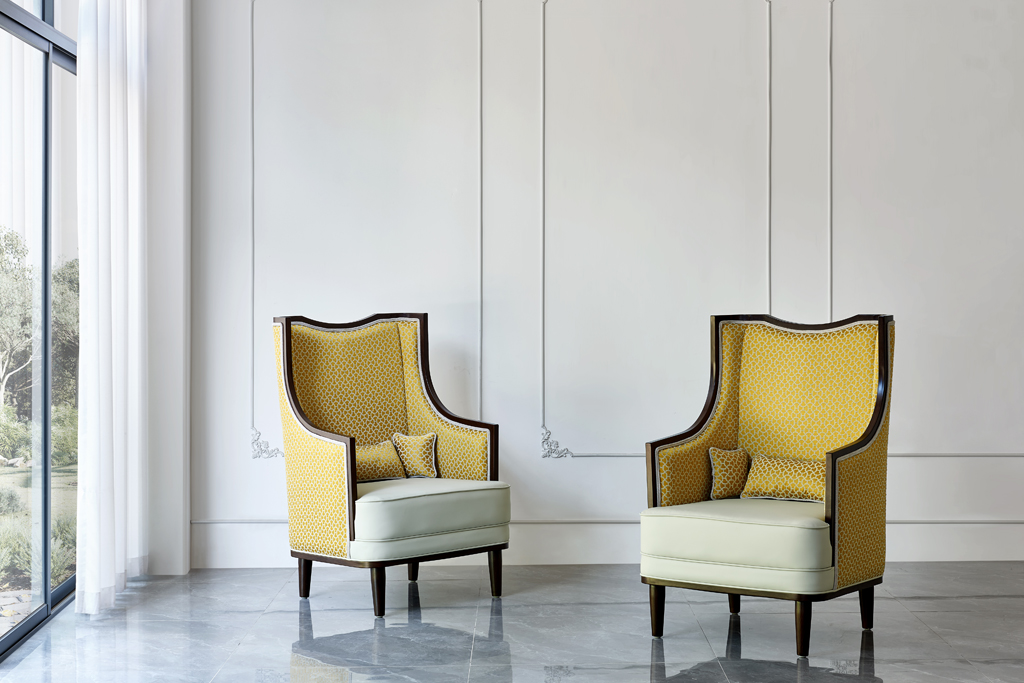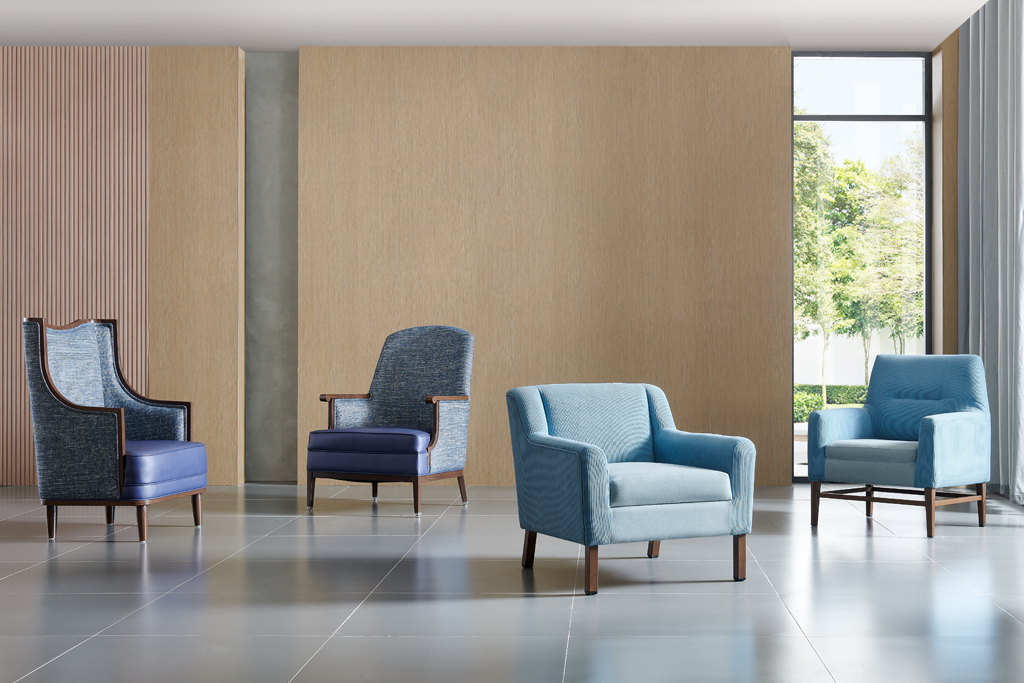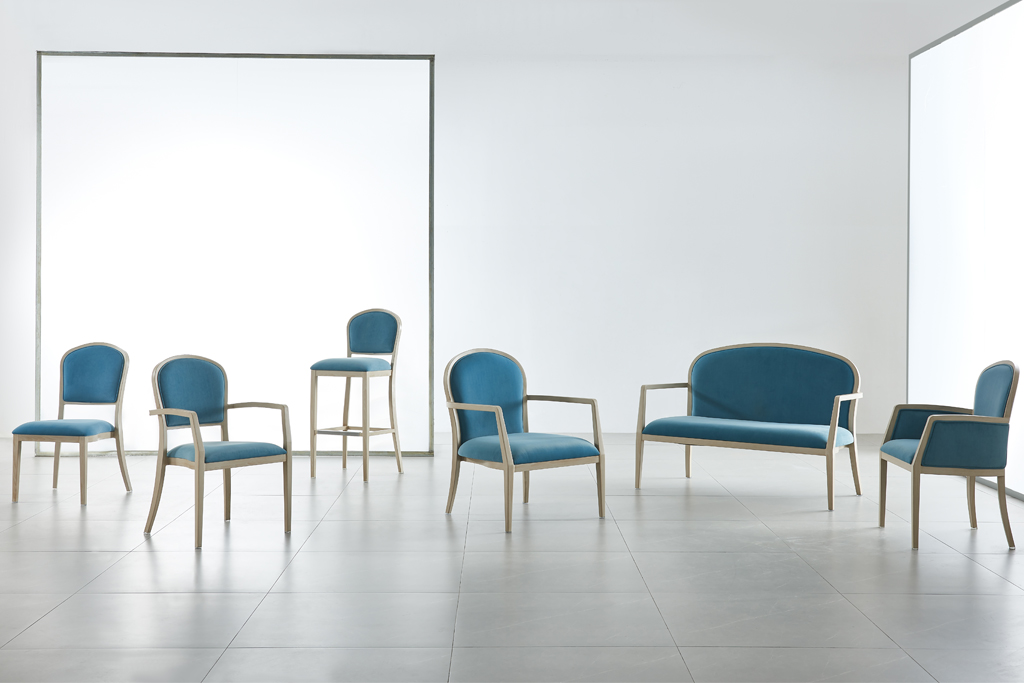Optimizing Comfort and Functionality: Elderly Furniture Solutions for Commercial Spaces
In an era where the elderly population is steadily growing, the demand for specialized furniture in commercial spaces for seniors has become more pronounced. This surge is particularly evident in care homes, nursing homes, retirement homes, and assisted living facilities. These establishments play a crucial role in providing support and a comfortable living environment for seniors.
We have dedicated this article to exploring the essential considerations for optimizing both comfort and functionality in furniture for the elderly, with a keen focus on ensuring the well-being of the elderly in these diverse and challenging environments.
Understanding the Unique Needs of the Elderly
As we start this exploration, it's crucial to grasp the unique needs of the elderly. Let’s talk about the various physical challenges they face and the importance of supportive and ergonomic furniture in addressing these challenges.
★ Physical Challenges Faced by the Elderly
• Limited Mobility
One of the primary challenges faced by seniors is limited mobility. Aging often brings about a decrease in muscle strength and joint flexibility, making movement more challenging. This limitation significantly impacts how seniors navigate their surroundings and interact with furniture.
• Joint and Muscle Issues
Joint and muscle issues, including arthritis and general stiffness, are prevalent among the elderly. Furniture that takes these conditions into account can greatly alleviate discomfort and enhance the overall well-being of seniors.
• Posture Concerns
Maintaining proper posture becomes increasingly difficult with age. Poor posture can lead to a range of issues, from back pain to reduced lung capacity. Ergonomically designed furniture becomes a key factor in promoting good posture and mitigating associated health risks.
Recognizing the unique needs outlined above underscores the importance of furniture that goes beyond mere aesthetics. Supportive and ergonomic designs become paramount in providing solutions that actively contribute to the comfort and functionality required for the elderly.
Design Principles for Elderly-Friendly Furniture
With a solid understanding of the challenges faced by seniors, we can now explore the specific design principles that make furniture truly elderly-friendly. These principles are not only applicable in care homes and nursing facilities but are universally beneficial in creating inclusive spaces for seniors.
★ Stability and Safety
▶ Robust Construction
Stability is a cornerstone of elderly-friendly furniture. Robust construction ensures that chairs and other seating options remain sturdy and secure. This not only prevents accidents but also fosters confidence among seniors, allowing them to move and interact with their surroundings without fear of instability.
▶ Non-Slip Features
Incorporating non-slip features into furniture design is a simple yet effective way to enhance safety. Secure grips on chair legs, for instance, can prevent slips and falls, which are significant concerns in environments where the elderly are prevalent.
★ Ergonomics
▶ Supportive Backrests
A key consideration in ergonomic design is the inclusion of supportive backrests. Chairs that offer proper support to the spine significantly reduce discomfort and promote better posture. This is especially crucial for seniors dealing with conditions affecting the back and spine.
▶ Armrest Accessibility
Well-designed and strategically positioned armrests play a vital role in making furniture accessible for the elderly. They facilitate the sitting down and standing up process, making these actions more manageable for seniors with reduced mobility.
★ Comfort
▶ High-Quality Cushioned Materials
Comfort is a central tenet of elderly-friendly furniture. Using high-quality, cushioned materials ensures a pleasant sitting experience. This not only enhances overall well-being but also addresses issues related to prolonged sitting, such as pressure sores.
▶ Pressure-Relief Considerations
Furniture designed with pressure relief in mind distributes the body's weight evenly. This is crucial in preventing discomfort and potential health issues associated with prolonged sitting. Pressure-relief considerations contribute to a more supportive and health-conscious furniture design.
Commercial Application Of Furniture For The Elderly
Understanding the principles of furniture designed for the elderly is just the beginning. The real impact of these principles is felt when applied in commercial spaces for elderly. Let’s see how such furniture can be effectively utilized in care homes, nursing homes, retirement homes, and assisted living facilities.
❖ Care Homes
Care homes are spaces where elderly individuals often spend a significant portion of their time. The selection of furniture is instrumental in creating an environment that is not just functional but also conducive to the overall well-being of residents. Thoughtful choices contribute to a sense of comfort, security, and familiarity.
The quality of life for residents in care homes is directly impacted by the environment in which they live. Elderly-friendly furniture that aligns with the unique needs of individuals in care homes can enhance their daily experiences. This, in turn, contributes to an improved quality of life.
❖ Nursing Homes
Nursing homes often cater to individuals with specific healthcare needs. Furniture designed for the elderly becomes an integral part of the caregiving environment. From supportive seating to pressure-relief features, each aspect contributes to a holistic approach to patient care.
The well-being of individuals in nursing homes extends beyond medical care. The environment, including the furniture in communal spaces, plays a crucial role in improving overall well-being. Thoughtful furniture choices contribute to an atmosphere that supports both physical and mental health.
❖ Retirement Homes and Assisted Living Facilities
Retirement homes and assisted living facilities aim to provide a balance between independence and necessary support. Furniture that promotes ease of use and comfort contributes to this delicate balance. Seniors in these facilities can navigate communal spaces with confidence and autonomy.
Communal spaces in retirement homes and assisted living facilities are hubs of activity. Furniture that caters to diverse needs ensures that these spaces are inclusive and accommodating. Whether seniors prefer more supportive seating or options with additional features, a well-thought-out selection addresses these varied requirements.
Yumeya Furniture: A Spotlight
As we navigate the landscape of furniture solutions for the elderly, it's essential to highlight companies that stand out in their commitment to quality and functionality. Yumeya Furniture emerges as a reliable supplier with a dedicated focus on meeting the unique needs of seniors in commercial spaces.
Yumeya Furniture's prominence in the industry is marked by its unwavering commitment to providing comfortable furniture for the elderly. With an understanding of the challenges faced by seniors, Yumeya has positioned itself as a key player in delivering quality and functionality.
Yumeya Furniture's commitment goes beyond mere rhetoric. The company is dedicated to producing furniture that not only meets but exceeds the expectations of clients and the unique requirements of the elderly. This commitment is evident in their range of products and the thoughtful integration of features that prioritize comfort and functionality.
Conclusion
The journey of optimizing comfort and functionality in comfortable furniture for the elderly is a multifaceted exploration. The principles of stability, safety, ergonomics, and comfort are crucial in creating environments that prioritize the well-being of seniors. Yumeya Furniture, with its commitment to quality and functionality, stands as a testament to the industry's dedication to meeting the unique needs of care homes, nursing homes, retirement homes, and assisted living facilities. The importance of specialized furniture cannot be overstressed. It plays a pivotal role in creating environments that enhance the lives of seniors, promoting not only physical well-being but also emotional and mental health.
Facility managers and decision-makers are urged to prioritize the selection of furniture that prioritizes comfort and functionality. The impact of well-designed furniture goes beyond aesthetics; it directly contributes to the overall quality of life for elderly individuals in care.
As a reliable supplier in the industry, Yumeya Furniture stands ready to meet the unique needs of commercial spaces for the elderly. The company's commitment to delivering quality and functionality makes it a valuable partner in creating environments that elevate comfort and enhance the lives of seniors. Choose Yumeya Furniture for furniture solutions that truly make a difference.
FAQs
1. Why is specialized furniture crucial for the elderly in commercial spaces?
Specialized furniture for the elderly in commercial spaces is crucial because it addresses the unique physical challenges seniors face. From limited mobility to joint and muscle issues, specialized furniture ensures comfort, support, and functionality, contributing to an improved quality of life.
2. What design principles should be considered for furniture in care homes and nursing facilities?
Design principles for furniture in care homes and nursing facilities should prioritize stability, safety, ergonomics, and comfort. Robust construction, non-slip features, supportive backrests, and pressure-relief considerations are key aspects ensuring the well-being of elderly individuals.
3. How does Yumeya Furniture stand out in meeting the needs of seniors in commercial spaces?
Yumeya Furniture stands out due to its unwavering commitment to quality and functionality. The company's products are designed with a deep understanding of the challenges faced by seniors, offering solutions that prioritize comfort, safety, and overall well-being.
4. Why is height adjustment often desired in furniture for the elderly, and how does Yumeya address this need?
Height adjustment in furniture is desired for customization based on individual height, promoting optimal comfort. While Yumeya's furniture may not have height adjustment, it compensates with innovative design features, such as varied cushion thickness, ensuring versatility and accommodation of different needs.
5. What role does furniture play in promoting independence and comfort in retirement homes and assisted living facilities?
Furniture in retirement homes and assisted living facilities plays a pivotal role in promoting independence and comfort. Thoughtfully designed options cater to diverse needs, allowing seniors to navigate communal spaces with confidence and autonomy, enhancing their overall living experience.















































































































